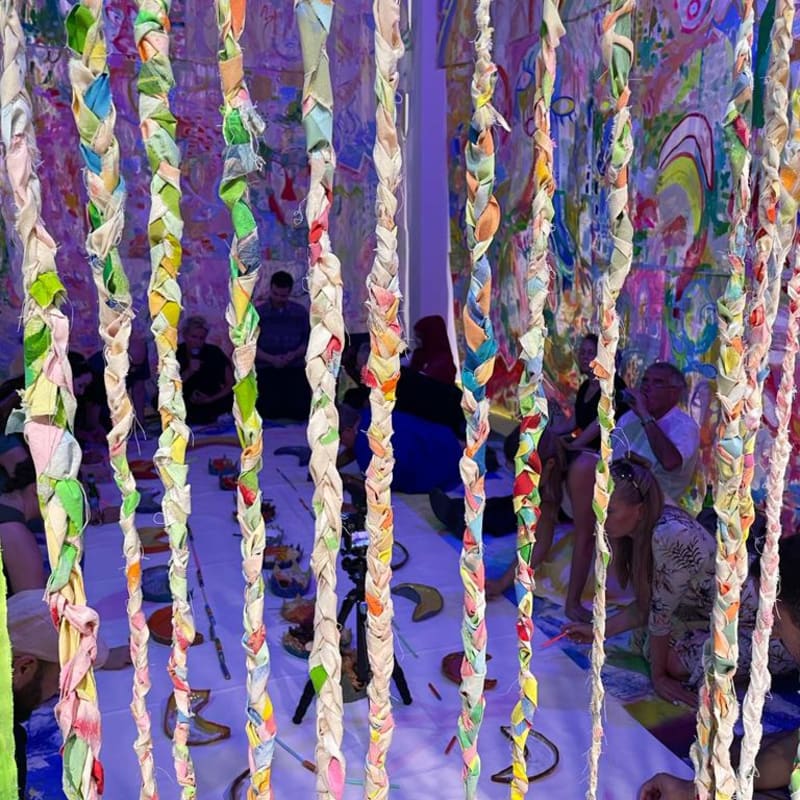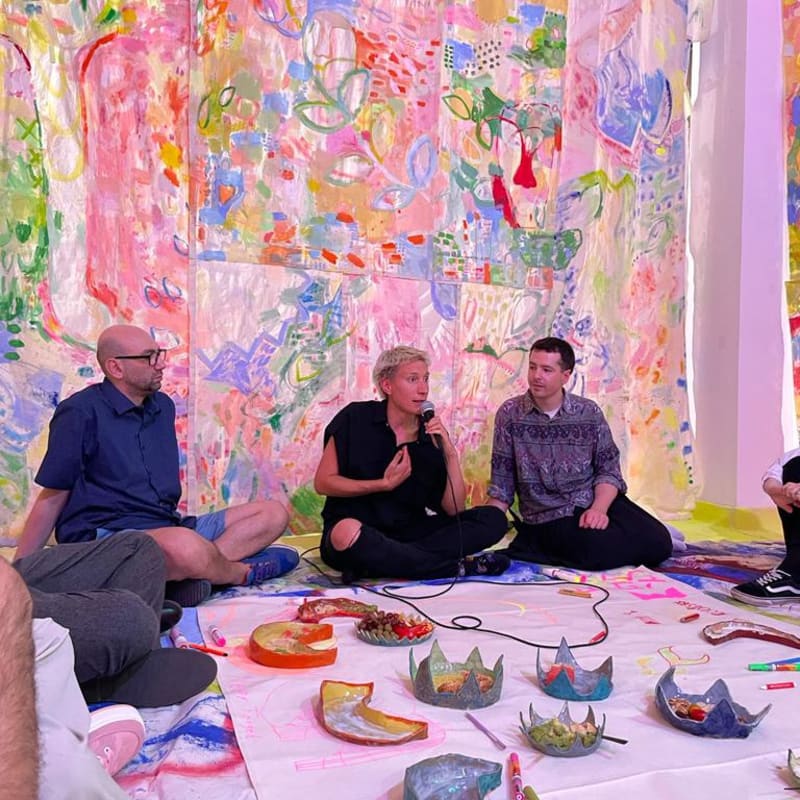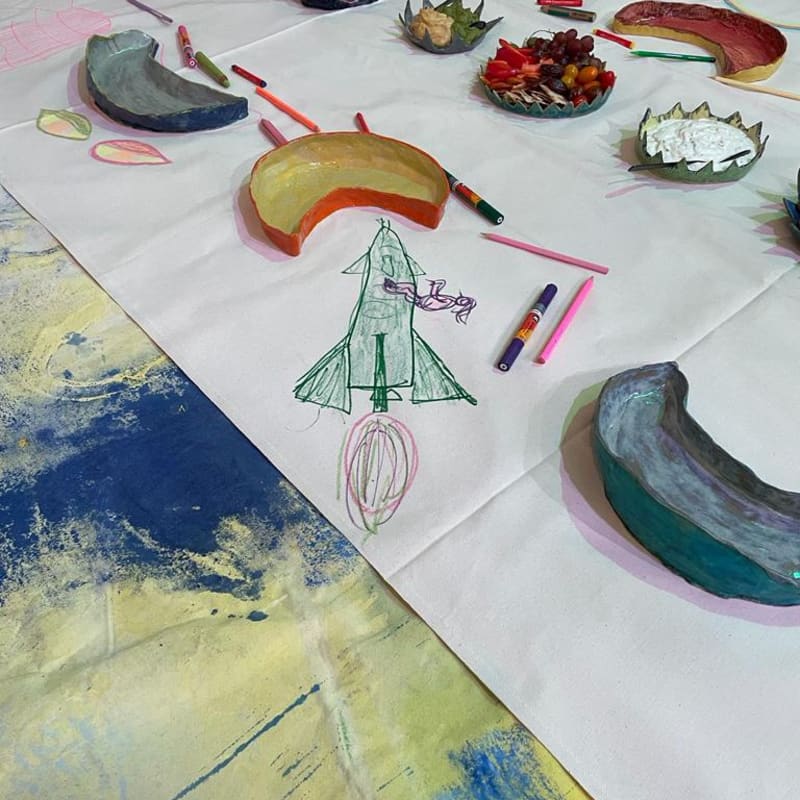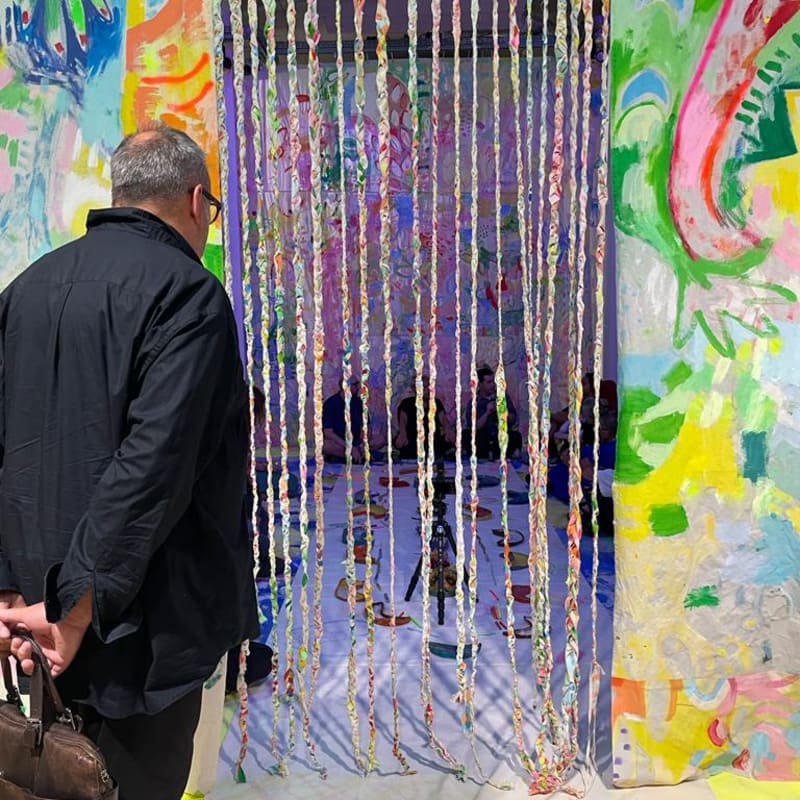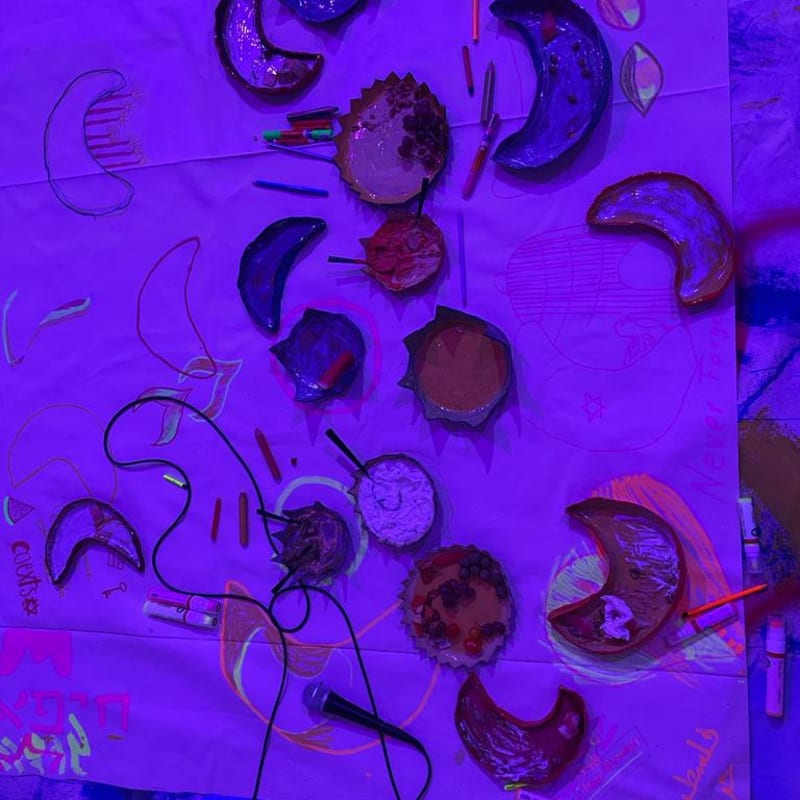6:30-10:00 P.M.
To celebrate the end of Stella Meris Solo Show "The Sun Above All" we would like to invite you to be part of the happening as well as to a discussion and exchange between Palestinian, Jewish and German voices.
The happening will take place in a large tent installation, where handmade ceramics will hold various culinary surprises for visitors.
The Tent of Encounters - Stella Meris' work delves into the reinterpretation of Christian, Jewish, and Islamic dogmas and explores the concept of sacred space for believers, atheists and agnostics. Inspired by queer feminist theology, the queer, Swiss-German artist aims to create sacred spaces that cross cultural boundaries and are accessible to people from the LGBTQ+ community and their allies.
The aim of the event is to bring together and exchange Palestinian, Jewish and German voices. The common memory of historical injustice leads to questions of democratic coexistence in a multicultural society as well as international solidarity and the peace movement in relation to Israel-Palestine. The starting point for the discussion is the personal perspective of Udi Raz (Jewish Voice), N.N. (Palestine Speaks) and Stella Meris (artist). Without polarising or falling into clichés, they create a discursive space for interpretations from queer-feminist theology, inter-religious exchange and atheist perspectives to explore different value systems from today's perspective. Gallery owner Stella Melbye-Konan will moderate the discussion and give the audience the opportunity to actively participate.
The three cultural workers have different connections to historical Palestine and grew up with very different narratives. At the "Let the Rainbow Rain" happening, they talk about transformation processes and how their ideas about religion, nationality and history, for example, have changed in dialogue with others. How does one become open to new perspectives on one's own history? And how can a common and plural culture of remembrance emerge in Germany despite political restrictions, such as the ban on assemblies to commemorate the Nakba? The confrontation with historical narratives and one's own gaps in education is both a political and a personal question of responsibility and belonging.
We look forward to seeing you!
